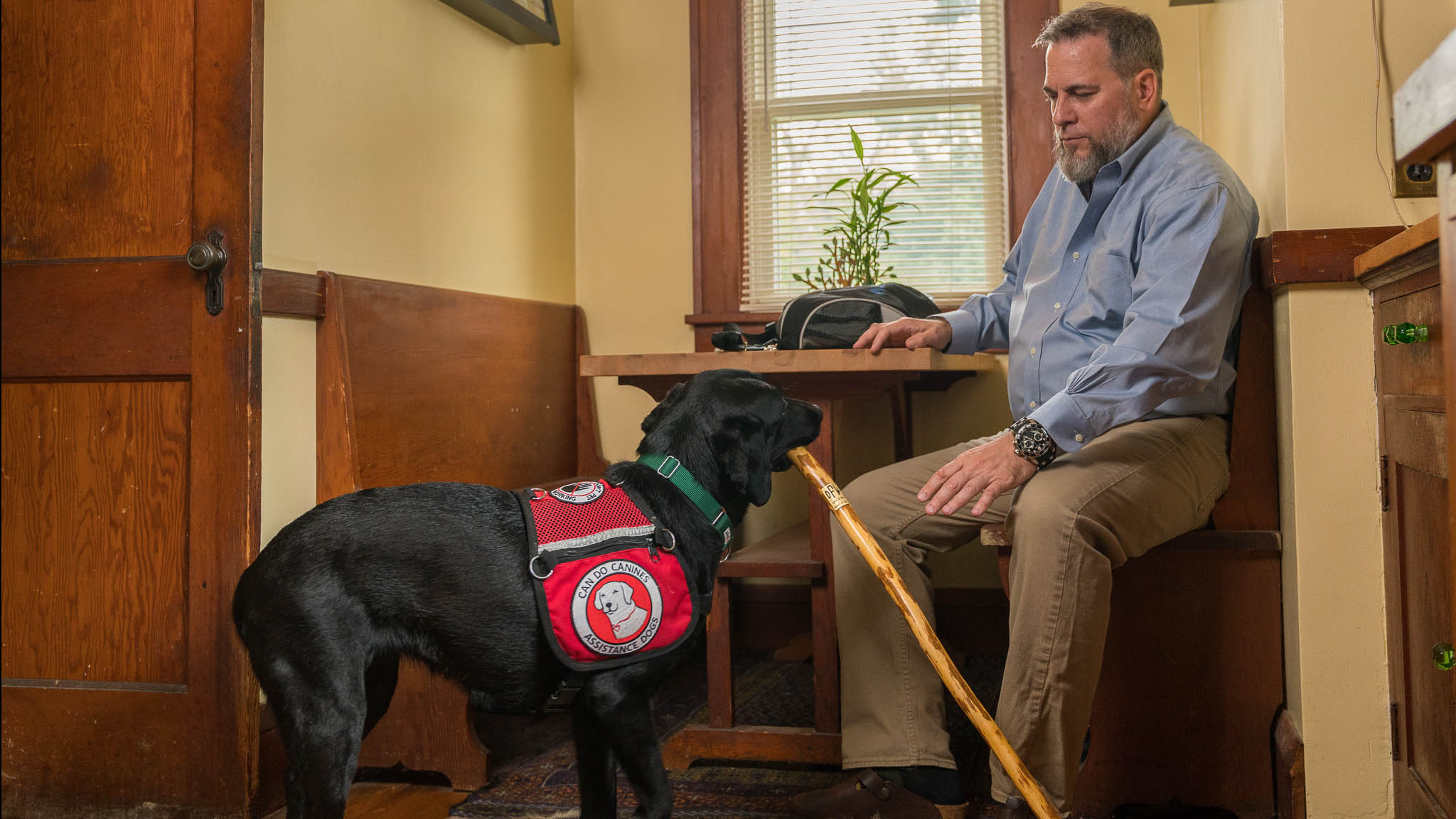For Alan Peters, Can Do Canines is the fulfillment of a long-time dream to create mutually beneficial partnerships between people and specially trained dogs. Since he founded the program in 1987, the New Hope, MN-based non-profit has placed more than 600 assistance dogs – free of charge – with persons with disabilities.
“The impact is almost always a better attitude about life,” Alan explains. “People who once felt isolated or marginalized feel more engaged in the world when they enter each day with an assistance dog by their side.”
Alan recalls the program’s first pairing, Annie and Marcy. “Marcy was deaf and lived alone,” he recalls. “She was terrified at the sounds she was missing. She didn’t know when someone was at her door, or when someone tried to call her.” The fledgling organization matched Marcy with a little terrier mix named Annie, who had been slated for euthanasia at a local animal shelter. Annie learned to alert to sounds like smoke alarms, door knocks, alarm clocks and telephones. “It completely changed Marcy’s life, giving her greater independence and peace of mind,” Alan explains.
While Can Do Canine got its start providing hearing-assistance dogs, today the organization also provides service dogs to aid those with limited mobility, seizure disorders, type 1 diabetes and children with autism. Can Do Canine dogs learn all kinds of jobs, from opening doors to sensing when a person’s blood sugar is low. However, in addition to those tangible tasks, the dogs provide a valuable social connection. “Often, people with disabilities feel isolated from others, but with a service dog, the dog becomes the focus, not the disability,” Alan notes.
Critical to the non-profit’s success is its team of more than 900 volunteers, who do everything from fundraising to puppy raising. Two of those dedicated volunteers, Patrick and DeeDee Heffernan, have been fostering and raising puppies for Can Do Canines since 1992. “It started as a compromise, my wife wanted a dog – I, of course, didn’t,” Patrick recalls. However, it wasn’t long before their involvement in the organization blossomed, as they saw what a difference the dogs made. “We’re helping people have a better life where they can be more independent, and at the same time providing a really high quality of life for the dog too.”
Alan admits that not every dog has the right combination of intelligence, attitude and personality to become a service dog, but those who do seem to thrive at the chance to play such critical roles in their owners’ lives. “Our dogs love what they do,” he explains, “and it makes a world of difference to those with disabilities.”

